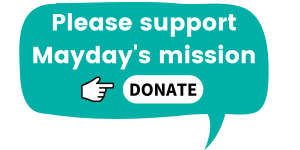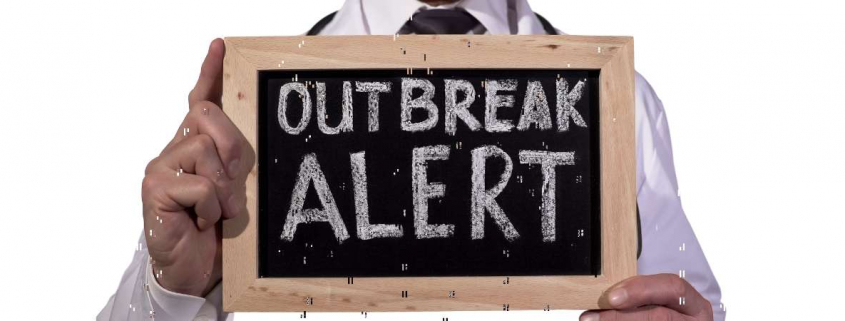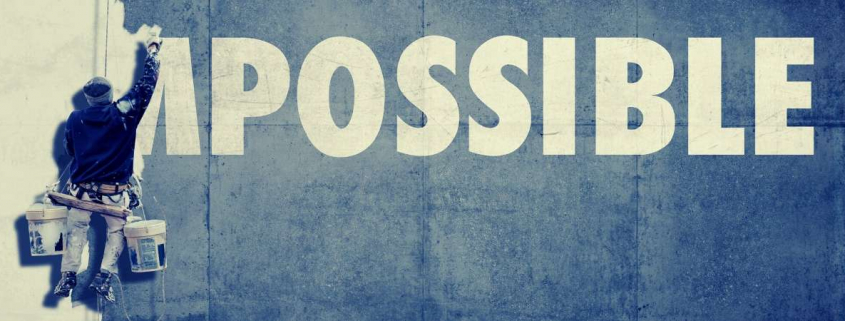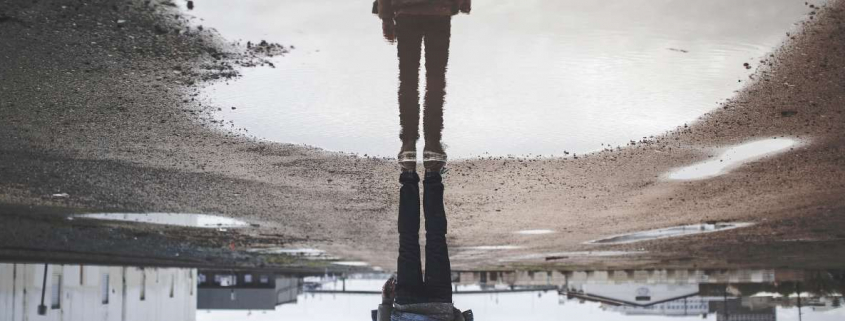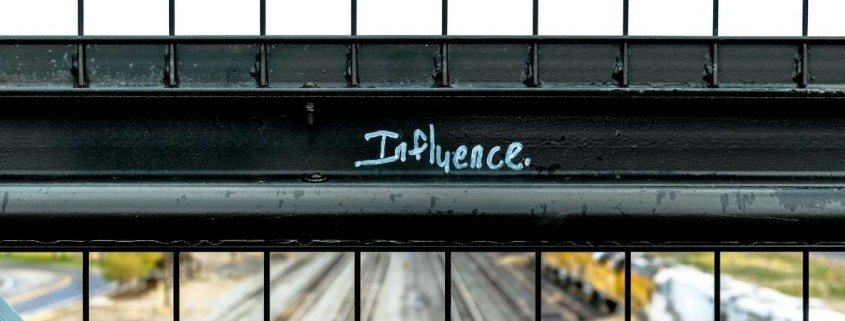Systems are Systems, People are People
Your PTS Quality Assurance Manager here checking-in post maternity leave. And what a strange maternity leave this has been! I promise, I will not overuse the term ‘unprecedented times’ but….you know.
My pregnancy and the birth of my first child initially threw me into a ‘system of systems’ before I was unceremoniously chucked back out as soon as the dreaded ‘C’ word hit. And the turmoil caused by being part of a process-led system and then having that system removed led me to question my real understanding of systems damage on individuals.
Through working in partnership with allies to develop the New System Alliance, and my seven years working with all of our colleagues to progress the Person-Led, Transitional, Strength-based response (PTS), I learnt a lot about the systems damage and barriers people experience as they transition through their tough time. People are labelled and syphoned into the corresponding silo of services, turning their understandable, human responses into over-pathologised and medicalised issues.
These ‘system-led’ responses create internalised system failures; the quiet and pervasive destroyers of hope and aspiration. People wear the labels assigned to them and they internalise the diagnoses. Without realising it, people develop internal barriers based on this evidence of perceived ‘failure’ which prevents them from seeing the choices, control and personal transitions which are within their reach. I saw this happening to those we work with but I didn’t see when it was happening to me.
Let me make absolutely clear that this is in no way a negative commentary on the NHS and the fabulous doctors and nurses. We all agree that we can never repay the debt of gratitude we owe to them. What I wish to reflect on is system-led responses to human situations and the effect these have on all people locked within those processes – including fantastic frontline teams.
I suffer from a medical condition that prevented me from becoming pregnant. My medical records described this as ‘failing’ to get pregnant. I was ‘unresponsive’ and I had ‘abnormal’ test results. I was categorised as infertile. All negative, derogatory and labelling language which is accepted as part and parcel of fertility conversations – and medicalised language in general. My doctor explained that it was ‘just language’ which they ‘had to use’ and he didn’t see my situation as anywhere near as hopeless as it sounded. But seeing myself described in such negative terms felt like a physical blow in an already emotionally painful situation.
At the ripe ‘old’ age of 33 I became pregnant and the immediate happiness was somewhat undermined by the term ‘geriatric mother’ which was added to my medical records (‘Sorry – it is just a standard term. We know you are not geriatric at 33’). I was immediately categorised as ‘high risk’ due to my medical history despite being the fittest I had been in my adult life. From then on, every conversation I had with a doctor or nurse, or even the doctor’s receptionist, started with me having to recant my full medical history without any consideration of the effect this might have on my mental wellbeing. In return, I was told what tests, medicines and interventions I would have rather than being asked what would help me or what I might like to do. There were no choices, only the best ways to ‘manage’ my pregnancy.
It was all done with good intentions; the NHS were going to throw the kitchen sink at me to ensure a safe, controlled, happy ending to my medical journey. And I began to accept that reassurance, along with all the labels and interventions that came with it. I started to act as if I was ill, rather than pregnant. I accepted that the services were in charge because, after all, I had ‘failed’ to get pregnant to begin with so what did I know about anything? People wanted to help me; they wanted to manage my risks for me. It seemed for the best to let the services take over when I wasn’t at my strongest.
At an emergency scan, which was automatically triggered by my high-risk status, I met a wonderful midwife who opened my eyes to the fact that I was travelling through a system. She explained that I was not being measured against any of my personal attributes. My pregnancy ‘success’ was being measured against national averages. The extra treatment had nothing to do with me as a person because the system is not designed to see individuals. She apologised because, in all likelihood, I would be referred to see her again but if so, I should remember that I was a person overcoming previous medical trauma quite successfully and I could decide how I wanted to proceed.
The flood of relief and hope I felt is indescribable. I had forgotten that I was an individual in charge of my life. I had forgotten that I was pregnant and not ill. I had become comfortable in the new, medicalised community of the doctors and nurses I saw at the emergency appointments and I had forgotten the wider community of support that surrounded me. I had lost myself temporarily in the system. But thanks to this wonderful midwife, who took a person-led, humane approach, I was back.
My son was born two weeks before full lockdown was implemented. I was told to start shielding the week we took him home. And that was it – no system. No midwife visits, no health visitor, no 6-week check-up. From all to nothing. The system is so large and complex that the ability to adapt quickly to changing situations and personal circumstances was impossible despite the best efforts of individuals to try to keep some form of personalised support available. I could hear the frustration of caring people who wanted to offer more individual support relevant to the unique situation but who were restrained by the lack of flexibility to utilise options such as Zoom to respond in real-time. Even in such unprecedented (sorry, I said the obvious again!) times, Midwives and Health Visitors still had to follow the same mandatory schedule of contact and standard checks, responding on a risk measurement basis rather than on an individual level. And this was hitting them hard too – I know this because they told me during our limited contact. They do their job because they care, and the small elements of individualised care they can offer during face-face visits was gone leaving just ‘the system’ in its place.
I owe NHS staff so much which is why I want to acknowledge the burden of systems that they and most frontline teams have to navigate every day. Everyone I met had nothing but good intentions for my health and that of my baby but they could only help within the constraints of the system;
- The deficit language they have to use because it is recognisable
- The pathway of standardised responses they had to send me down because it was the only way for me to access some of the resources I needed
- The risk assessments they are mandated to carry out on everyone and the standard triggers for indicating high risk based on past experience
- The lack of a person-led or active response they can provide because the current system cannot accommodate it
The problem is the system response, and the systems damage this creates, for all of us who want to work with people experiencing tough times so that they can transition to achieving their aspirations.
It is the culture – the language of deficits, the process-led policies, the hierarchical structures, the lack of autonomy to provide a human response and choice.
It is the focus on the wrong outcomes – the way people are measured and evaluated, needs and risks and hard outcomes defined by the system being the primary objective over personal achievement.
It is the approach to working with people within this environment – ‘fixing’ people’s problems, prescribing and ascribing until you find the ‘label’ that fits, the label that captures the essence of that person’s problem and opens up the ‘right’ service pathway of standardised responses which segregates people from real-world experiences and opportunities.
Passionate New System Allies, who see the people at the end of service responses and understand the damage that can be caused, like the wonderful doctors and nurses who have supported me, can feel just as trapped by the system without the culture, approach and change in mindset to allow them to deliver a person-led response.
And this is why a paradigm shift in how the UK responds to people experiencing tough times is needed. Because we all experience the systems damage if things don’t change.
This blog was written by Ciara Killeen, PTS Quality Assurance Manager at Mayday. Intrigued? Why not read more PTS Blogs?


